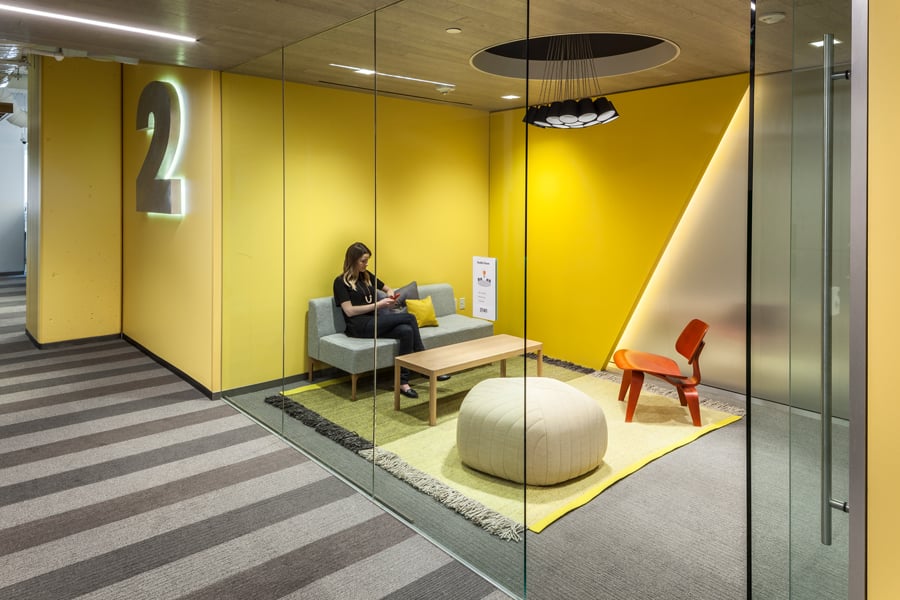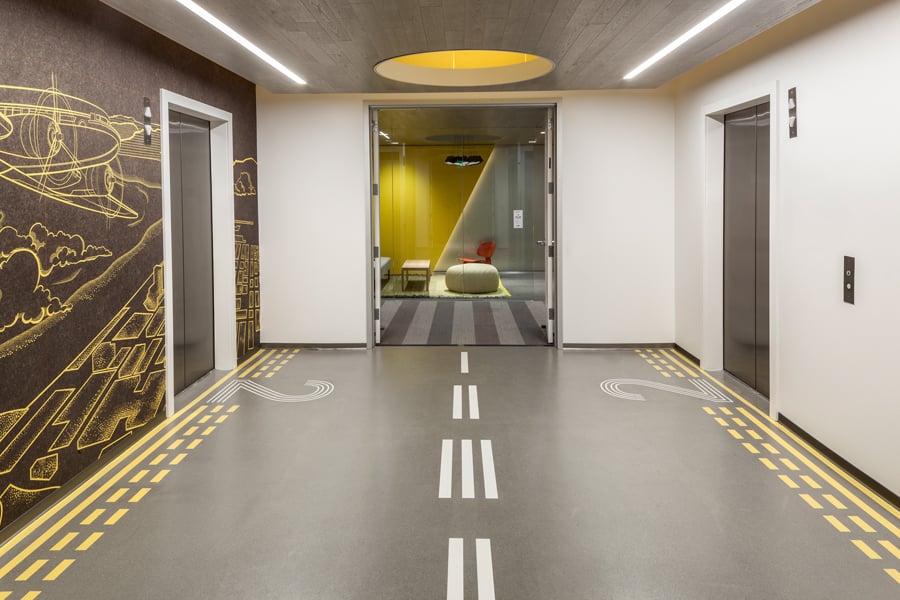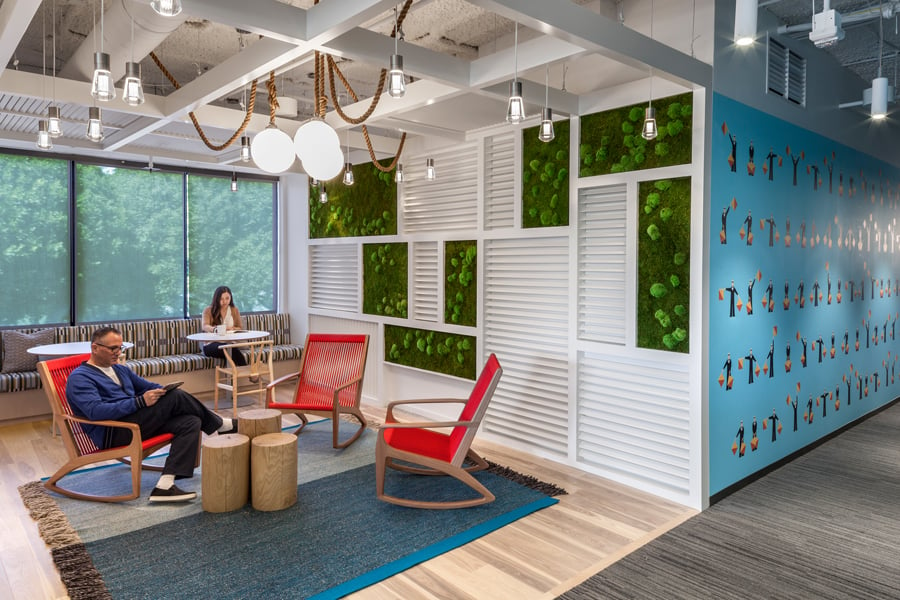
February 8, 2021
What Are the Long-Term Impacts of the Remote Work Revolution?
A Think Tank Panel considers how the changing perceptions of work will impact the future of offices, as well as cities and the people who live and work in them.

“What is the city but the people?” asked Shakespeare’s Coriolanus. The future of cities, workplaces and the people who occupy them were the subject of a Metropolis Think Tank on December 10, “The Changing Perception of Work.” The wide-ranging discussion, hosted by AECOM, covered the post-COVID-19 work landscape and the profound impact of the pandemic on the very notions of urban life, work and the office.
“This is a once-in-a-lifetime moment when everything has changed,” said Doug Sitzes, regional leader, workplace design and workplace strategy, AECOM Interiors & Strategy+. Flexibility and remote work are here to stay, the panel agreed, but that won’t change the human need for connection and affirmation.
“I’m an eternal optimist,” said Laurie Ledford, SVP, Chief Human Resources Officer, Marsh & McLennan Companies. “People are people and they do want to be together.” But what form will the work/home balance take?
Mary Tinebra, HR and digital transformation business leader, senior partner, Mercer Consulting, quoted some interesting statistics. “Sixty-six percent of employees surveyed would consider switching employers if flexibility were not an option. And 51% would consider relocating if flexibility became a permanent option.” Indeed, COVID has completely upended the search for talent. Kelly Bacon, principal and national leader, workplace strategy, AECOM, offered an example.
“Traditionally if you were a New York employer you drew from the Tri-State area [downstate New York, northern New Jersey and southwestern Connecticut].” But with the digital work revolution, she said, “Organizations are no longer tied to a particular geography.”
Not every employee is able to work efficiently from home, nor particularly wants to. “Some people work on their dining room tables while some have a fully dedicated home office,” said Sitzes. There is the digital divide, with not all employees having the latest technology at home. “I’m seeing organizations developing a kit of potential equipment and technology” to meet this need, he said. Tinebra took it a step further: “Organizations have made bigger investments in technology over the past six months than ever before.”
There are generational tensions at work, as well, with younger workers wanting face time with senior managers. “We asked our younger generation—Gen Z and Millennials—and they want to get back to the office because that’s where their career grows. But Boomers are not in a hurry to get back because of their family situations,” said Sitzes.
Collaboration among HR, real estate departments and IT are crucial for making remote work successful and the return to the office possible, the panel concluded. There have been recent meetings, Sitzes averred, “when it was the first time these groups have been in the same room together.”
In the end it’s all about people, as Coriolanus observed. Ledford said: “Our cities need people to return. Look at the downstream effect [on restaurants, stores and the like] of the closures. There has to be a partnership between government and employers to bring workers back.”
The Think Tank discussions were held on December 3, 10, and 17. The conversations were presented in partnership with Material Bank, Grohe, Versteel, Knoll Textiles, Etc., Loftwall, and GKD.
You may also enjoy “Workforce, not Workplace, Is the Key to Innovation and Success”
Would you like to comment on this article? Send your thoughts to: [email protected]
Register here for Metropolis’s Think Tank Thursdays and hear what leading firms across North America are thinking and working on today.







